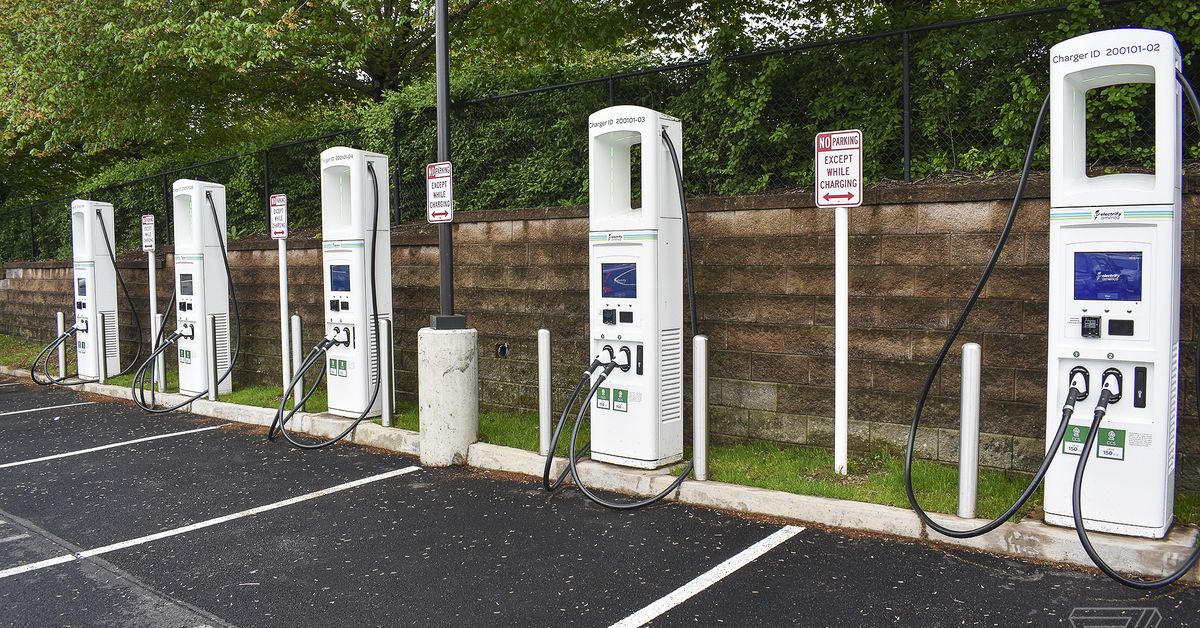
As US gas prices hit record highs in the wake of Russia’s invasion of Ukraine, it seems like electric vehicles may not be a safe haven for those looking to save money. That’s because Russia plays an important part in the production of the nickel that ends up in batteries used by many electric vehicles — a metal that’s rocketed up in price even faster than oil.
On February 25th, nickel was trading on the London Metal Exchange for around $24,000 a ton, according to The Wall Street Journal. By March 8th, it was trading at $80,000 (down from a peak of over $100,000), and the London Metal Exchange had suspended trading. There are a few reasons for the massive uptick in price — because it’s 2022, there are financial shenanigans involved, but it’s also impossible for the market to ignore the fact that an important nickel producer is at war and facing a flurry of international sanctions.
The move in nickel prices today is by far the biggest-ever one-day increase in the six base metals (nickel, tin, copper, aluminum, zinc, lead) traded on the London Metal Exchange pic.twitter.com/m9ZqdTcBM6
— Nat Bullard (@NatBullard) March 7, 2022
When it comes to mining nickel, Russia isn’t a massive player. According to the WSJ, the country supplies up to 6 percent of the world’s nickel. (For context, that puts it a distant third behind Indonesia and the Philippines, according to a datasheet from the US Geological Survey (pdf).) But Russia’s role in producing the battery-grade nickel used in EVs is a different story — in a Twitter thread breaking down the issue, the CEO of Benchmark Mineral Intelligence says 20 percent of that supply comes from a single Russian company.
Norilsk overall accounts for 7% of all in nickel supply. But EV makers, auto OEMs and battery cell producers will terrified of losing 20% of a market with prices already at decade long highs.
— Simon Moores (@sdmoores) February 24, 2022
Automakers are, of course, aware of nickel’s scarcity. Elon Musk, CEO of Tesla, tweeted in late February that the EV company plans to shift its standard distance cars away from nickel-hungry lithium-ion battery cells. Calling nickel the company’s “biggest concern for scaling,” he said that Tesla will be moving to iron cathode tech, but it’s hard to tell how long that process will take. It also doesn’t help with the more desirable long-range models. According to Bloomberg and Reuters, nickel prices were already becoming a problem for EV manufacturers even before the invasion.
(Last week, Musk also tweeted that the world needed to produce more oil and gas to make up for what it had been getting from Russia.)
It’s not impossible to make batteries without nickel — Volkswagen and other automakers are looking into other battery technologies that don’t use it or cobalt (the price of which has also been on the rise), according to Reuters.
But, like energy policy, battery production and integration is a big ship for automakers to turn around — if the prices of nickel and other metals stay up, it’ll be a race to switch to other tech before the shockwaves of higher prices and sanctions make their way through the supply chain. If automakers don’t make the shift quickly, it could put EVs even further out of reach for most Americans, at a time when gas prices are making them look better than ever.
